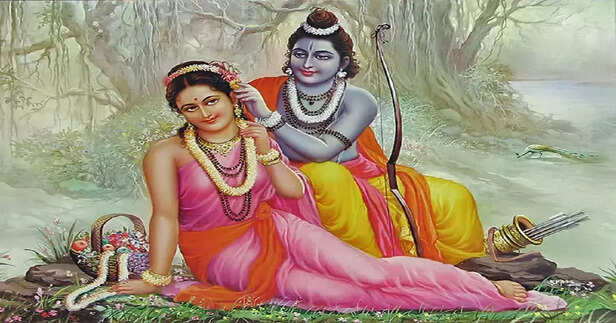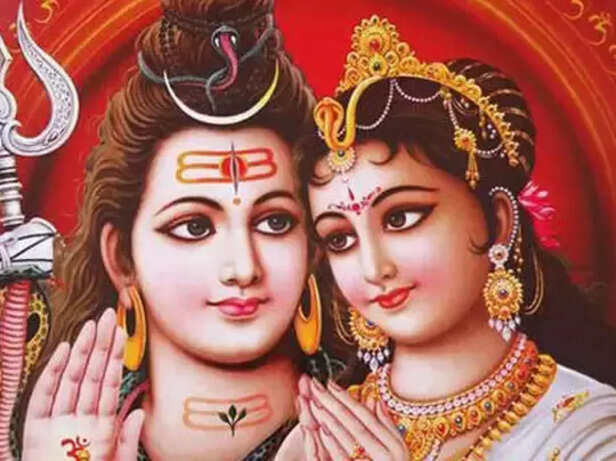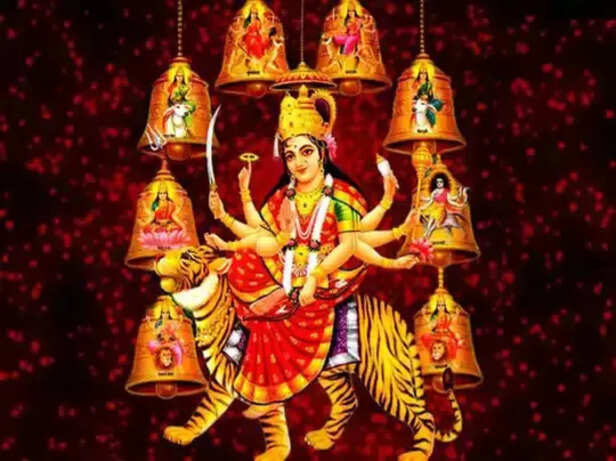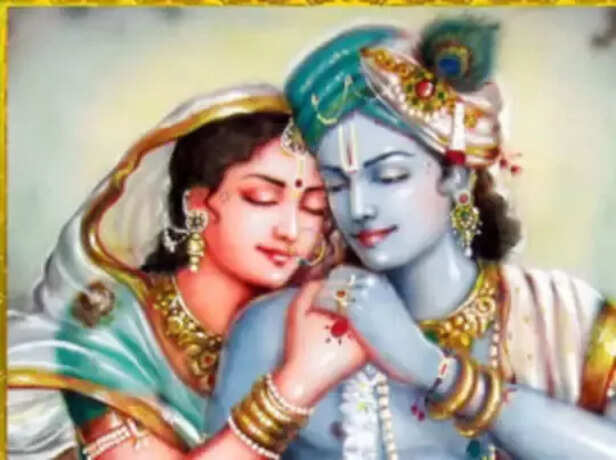Every Woman as Devi: Sanatan Dharma’s Message on Worshiping Every Woman
Riya Kumari | Mar 06, 2025, 21:56 IST
( Image credit : Timeslife )
Sanatan Dharma wasn’t just ahead of its time—it basically lapped modern feminism before it even started stretching. Way before the world decided that women should have basic rights (gasp), Hindu philosophy already had them reigning as Shakti—the supreme cosmic energy. And yet, somewhere between ancient wisdom and whatever the hell patriarchy is doing now, we lost the memo.
We live in a world that celebrates goddesses in temples but often forgets to honor the women who walk among us. Every Navratri, we fast and pray to Durga, Lakshmi, and Saraswati, seeking strength, prosperity, and wisdom. We bow before idols, offer flowers, and chant hymns, but the moment the festival ends, the reverence often fades. We return to a society where women are questioned more than they are heard, valued for their roles rather than their existence, and expected to be strong but never too free. But here’s the truth—Sanatan Dharma never needed a feminist movement. It already recognized the feminine as divine. It never placed women below men; it never said they must be controlled or silenced. In fact, if we truly understood our own culture, we would know that our greatest gods did not just respect women—they worshipped them.
1. Ram Without Sita, Heaven Without Meaning

Shri Ram—the very embodiment of dharma, the ideal king, the one whose name itself means righteousness—did not see Sita as someone beneath him, nor did he see her as an extension of himself. She was his equal, his essence, his very being. He did not just love her; he built his entire idea of life around her.
At the end of his mortal journey, when Ram was about to leave the world and ascend to Vaikuntha, he said something extraordinary—“If Sita is not there, I do not want to go to heaven.” This was not just love; this was truth. A heaven without Sita was not heaven at all, because without the feminine, without the balance of Shakti, even the highest realms lose their meaning. If the very god we worship saw no joy, no purpose, no divinity in a world without a woman, what does it say about those who treat women as secondary, as lesser, as anything other than equal?
2. The Gods Who Bowed Before Women

Ram was not alone in this understanding. Krishna, the divine strategist, the master of dharma, always placed Radha above himself. He was not Radha’s protector—he was her devotee. He did not see her as a possession—he saw her as the highest expression of love, of completeness, of the soul itself. There is no Krishna without Radha, no song of devotion without her name.
And then there is Shiva, the supreme destroyer and ascetic. Without Parvati, he is not Shiva—he is Shava (lifeless). When he lost her, he abandoned everything, because without her presence, even the great Mahadev felt empty. When she returned as Shakti, balance was restored, because Parvati was never lesser, never secondary—she was the very energy that made him whole.
Even in war, the gods understood this truth. When the devas were helpless against the demons, they did not turn to another god for help—they turned to Durga. They offered their powers to her because they knew only the feminine could save creation. When the world needed a savior, it was not a man who stepped forward—it was a goddess, a woman, the Devi herself.
3. What It Means to See Women as Devi

To see every woman as Devi is not about empty worship, grand gestures, or poetic words. It is not about placing women so high on a pedestal that they become untouchable, reduced to symbols rather than people. It is about recognizing their power, their intelligence, their choices, and their right to exist as free, complete, and sovereign beings.
It means understanding that respect is not given only when a woman fits into an ideal role—as a mother, a wife, a sister. Respect is hers simply because she exists. It means realizing that her dreams matter as much as any man’s, that her voice is not to be silenced, and that her presence in this world is not for someone else’s benefit, but for her own. A society that claims to worship Devi but fails to respect the women who walk beside them every day is not spiritual—it is hypocritical.
4. Respect Is Not a Festival—It Is a Way of Life

Sanatan Dharma never needed to "empower" women because it never saw them as powerless. It always knew the truth: the feminine is divine, the feminine is powerful, and the feminine is essential. The next time you bow before a goddess, ask yourself—do I carry that same reverence into my daily life? Do I respect the women around me the way Ram revered Sita, the way Krishna honored Radha, the way Shiva needed Parvati? If not, then the worship is incomplete.
The greatest offering to any goddess is not just flowers, lamps, or prayers. It is the way we treat the living embodiments of Shakti—the women who, like Devi herself, carry within them the power to create, to nurture, to lead, and to transform the world.
1. Ram Without Sita, Heaven Without Meaning

Sita ram
( Image credit : Times Life Bureau )
Shri Ram—the very embodiment of dharma, the ideal king, the one whose name itself means righteousness—did not see Sita as someone beneath him, nor did he see her as an extension of himself. She was his equal, his essence, his very being. He did not just love her; he built his entire idea of life around her.
At the end of his mortal journey, when Ram was about to leave the world and ascend to Vaikuntha, he said something extraordinary—“If Sita is not there, I do not want to go to heaven.” This was not just love; this was truth. A heaven without Sita was not heaven at all, because without the feminine, without the balance of Shakti, even the highest realms lose their meaning. If the very god we worship saw no joy, no purpose, no divinity in a world without a woman, what does it say about those who treat women as secondary, as lesser, as anything other than equal?
2. The Gods Who Bowed Before Women

Shiv parvati
( Image credit : Times Life Bureau )
Ram was not alone in this understanding. Krishna, the divine strategist, the master of dharma, always placed Radha above himself. He was not Radha’s protector—he was her devotee. He did not see her as a possession—he saw her as the highest expression of love, of completeness, of the soul itself. There is no Krishna without Radha, no song of devotion without her name.
And then there is Shiva, the supreme destroyer and ascetic. Without Parvati, he is not Shiva—he is Shava (lifeless). When he lost her, he abandoned everything, because without her presence, even the great Mahadev felt empty. When she returned as Shakti, balance was restored, because Parvati was never lesser, never secondary—she was the very energy that made him whole.
Even in war, the gods understood this truth. When the devas were helpless against the demons, they did not turn to another god for help—they turned to Durga. They offered their powers to her because they knew only the feminine could save creation. When the world needed a savior, it was not a man who stepped forward—it was a goddess, a woman, the Devi herself.
3. What It Means to See Women as Devi

Durga ma
( Image credit : Times Life Bureau )
To see every woman as Devi is not about empty worship, grand gestures, or poetic words. It is not about placing women so high on a pedestal that they become untouchable, reduced to symbols rather than people. It is about recognizing their power, their intelligence, their choices, and their right to exist as free, complete, and sovereign beings.
It means understanding that respect is not given only when a woman fits into an ideal role—as a mother, a wife, a sister. Respect is hers simply because she exists. It means realizing that her dreams matter as much as any man’s, that her voice is not to be silenced, and that her presence in this world is not for someone else’s benefit, but for her own. A society that claims to worship Devi but fails to respect the women who walk beside them every day is not spiritual—it is hypocritical.
4. Respect Is Not a Festival—It Is a Way of Life

Radha Krishna
( Image credit : Times Life Bureau )
Sanatan Dharma never needed to "empower" women because it never saw them as powerless. It always knew the truth: the feminine is divine, the feminine is powerful, and the feminine is essential. The next time you bow before a goddess, ask yourself—do I carry that same reverence into my daily life? Do I respect the women around me the way Ram revered Sita, the way Krishna honored Radha, the way Shiva needed Parvati? If not, then the worship is incomplete.
The greatest offering to any goddess is not just flowers, lamps, or prayers. It is the way we treat the living embodiments of Shakti—the women who, like Devi herself, carry within them the power to create, to nurture, to lead, and to transform the world.
